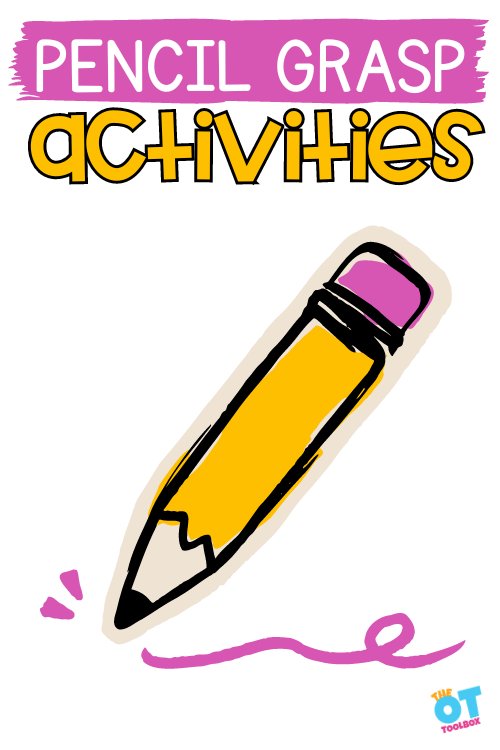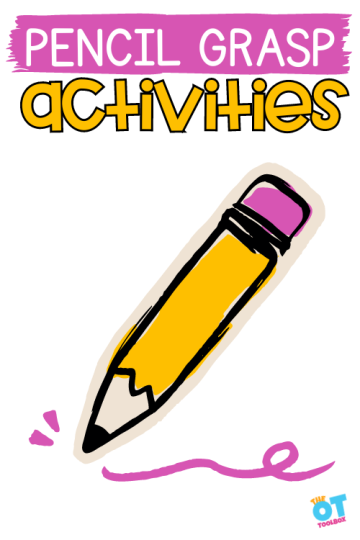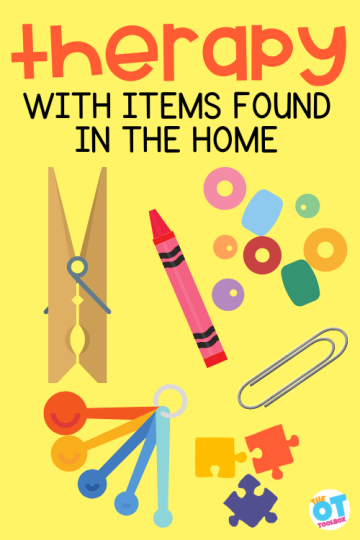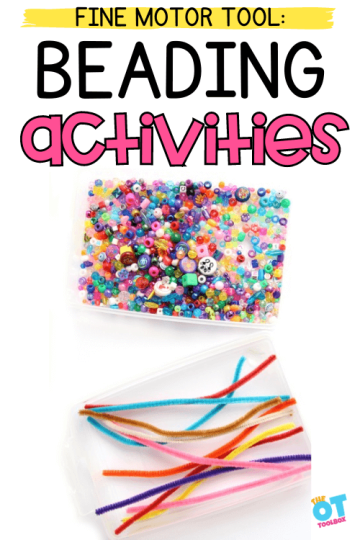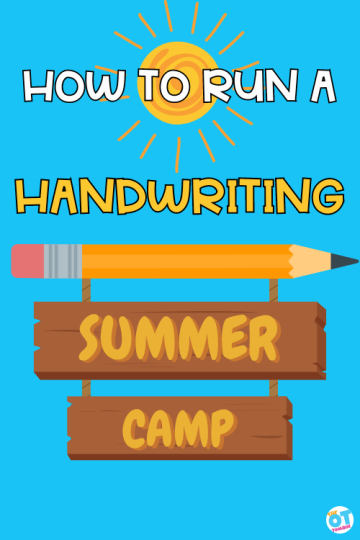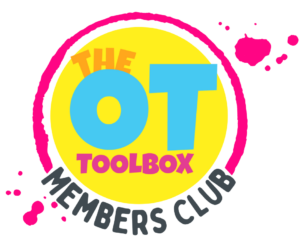Children love Spot It games and OT professionals love to use Spot It in occupational therapy to develop skills! Today’s free resource for OT month is a fun OT Spot It type of game. This occupational therapy supplies match it activity develops visual perceptual skills and uses common OT materials and supplies. If you are working with kids, you’ll want to grab this freebie as a tool to use during OT month, but also all year long!
Amazon affiliate links are included in this blog post. As an Amazon Influencer, I earn from qualifying purchases.
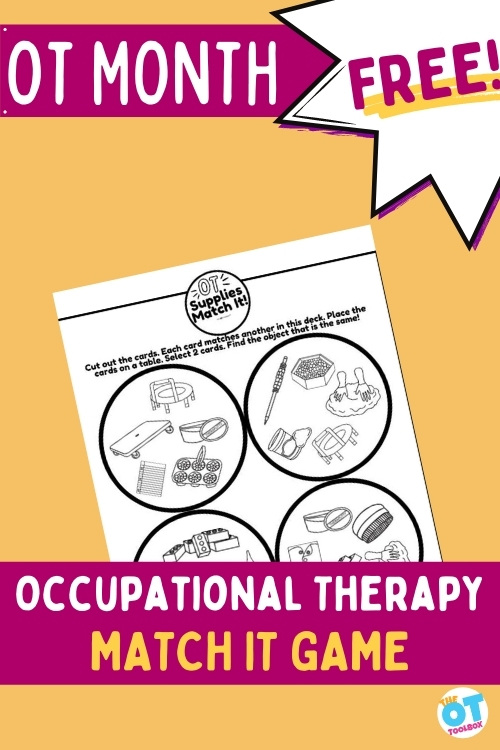
OCCUPATIONAL THERAPY Spot It Game
This therapy game is part of a larger set that you can find in our OT Materials Bundle. And, incase you missed the OT month freebie that we shared already, be sure to grab this set of OT coloring pages, too. Both are great resources to add to your toolbox.
If you have ever played the (Amazon affiliate link) Spot It card game, you will love these Occupational Therapy Supplies Match it Cards! Spot it games come in dozens of different styles to motivate even the most resistant learner. With these occupational therapy tools matching cards, learners can practice visual perceptual skills using a familiar platform.
Why are visual perceptual skills important?
We’ve previously shared a great post explaining the importance of visual perception on learning. Visual perception is important for reading fluency, decoding words, scanning a page, remembering what has been seen, finding things in a drawer or closet, playing games like puzzles, recalling/recognizing correct spelling, completing math equations, and so much more.
As a related resource, this free visual perception packet covers many different visual perceptual skills.
Spot It Game for Visual Perception
If you’ve seen the Spot It game being used in therapy sessions as a tool for development, you may have wondered how this popular game supports visual perceptual skills.
What visual perceptual skills are used in the occupational therapy supplies match it game?
- Visual Attention: The ability to focus on important visual information and filter out unimportant background information.
- Visual Memory: The ability to recall visual traits of a form or object.
- Visual Spatial Relationships: Understanding the relationships of objects within the environment.
- Visual Figure Ground: The ability to locate something in a busy background.
- Visual Form Constancy: The ability to know that a form or shape is the same, even if it has been made smaller/larger or has been turned around.
All of these skills are addressed through the use of the Spot It games, and that’s why we wanted to create an OT version to develop skills!
Use the OT Match IT Game
Because April is OT month, it is a great time to talk about the role of occupational therapy with other students, or to work with learners on understanding why they get OT.
They may not understand why they get to see this awesome person every week. By educating learners about the role OT plays in their lives, they can begin to explain it to other people. When we educate other adults about occupational therapy, we are advocating for the profession, as well as teaching them how we can help.
WHERE WILL YOU TAKE THIS ACTIVITY?
- A great place to start would be by ordering the rest of this occupational therapy supplies match it cards HERE. This bundle of occupational therapy activities includes 13 printable products that can be printed off and used with students in therapy sessions to celebrate all of the therapy tools kids use. This packet is great for OT month, and all year long.
- An all inclusive lesson plan can easily be made by using all of the occupational therapy month themed activity freebies:
- Occupational Therapy Coloring pages
- Occupational Therapy Equipment List Handwriting Sheets
- Occupational therapy Fine Motor Game
- Therapy Tools Word Search
- OT Supplies Match It Game– Grab it below
- Create a visual perception theme addressing several of the important visual perceptual skills. The OT Toolbox has some brand new resources for visual perception.
- Color and laminate these cards to build a reusable game set. Make a special game set for your learners to take home and share with family
- Have learners research and learn more about occupational therapy and the supplies or tools we use
HOW TO DOCUMENT Spot IT Games in Therapy
If you are using these occupational therapy supplies match it cards as part of your treatment plan, you will need to accurately document your learner’s skill level.
- The percentage of correct cards matched
- How long it takes to do each card
- Attention to detail, following directions, prompts and reminders needed, level of assistance given
- Can your learner scan the page to identify the correct items? Are they recognizing what they are matching or merely matching shapes?
- How many times do you need to repeat the directions so your learner can follow them?
- How many reminders does your learner need while doing this activity?
- First determine what goals and skills you are addressing. Are you looking strictly at visual perception and picture matching? Or something else entirely such as executive function and behavior?
- Focus your observations on the skills you are addressing. It is alright to address one (or ten) skills at once, just be sure to watch for those skills during the activity. This can take practice to watch everything all at once. Newer clinicians often videotape sessions and go back and review clinical observations they may have missed.
- Use data to back up your documentation. Avoid or limit phrases such as min assist, fair, good, some, many, etc. They are vague and do not contain the numbers and data critical to proficient documentation. Instead use percentages, number of trials, number of errors, time to do a task, number of prompts, minutes of attention. You get the idea.
- This type of documentation may feel foreign at first if this is not what you are used to, however insurance and governing agencies are becoming more strict on accurate documentation.
TAKE CARE OF YOURSELF AS WELL AS OTHERS
Take time this month not only to advocate for occupational therapy, but to celebrate each other for the fabulous work we do! Share stories of success, funny moments, learning opportunities, and resounding failures. Every time I think I have heard or seen it all in my thirty years practicing, a new surprise or hilarious moment comes my way! Someone should publish a book or page about all of the funny things people say during a therapy session.
This profession is rewarding but also very tough. Burnout is common among health professionals. In fact, caregiver stress and burnout applies to many therapy professionals! If you can’t find a moment of levity, it will break you.
While this post is highlighting the occupational therapy match it cards, take time to reflect about what great work you are doing, spread the word about OT, and practice your own self care.
Free Match IT Game for OTs
Want to add this resource to your therapy toolbox so you can help kids thrive? Enter your email into the form below to access this printable tool.
This resource is just one of the many tools available in The OT Toolbox Member’s Club. Each month, members get instant access to downloadable activities, handouts, worksheets, and printable tools to support development. Members can log into their dashboard and access all of our free downloads in one place. Plus, you’ll find exclusive materials and premium level materials.
Level 1 members gain instant access to all of the downloads available on the site, without enter your email each time PLUS exclusive new resources each month.
Level 2 members get access to all of our downloads, exclusive new resources each month, PLUS additional, premium content each month: therapy kits, screening tools, games, therapy packets, and much more. AND, level 2 members get ad-free content across the entire OT Toolbox website.
Join the Member’s Club today!

Victoria Wood, OTR/L is a contributor to The OT Toolbox and has been providing Occupational Therapy treatment in pediatrics for more than 25 years. She has practiced in hospital settings (inpatient, outpatient, NICU, PICU), school systems, and outpatient clinics in several states. She has treated hundreds of children with various sensory processing dysfunction in the areas of behavior, gross/fine motor skills, social skills and self-care. Ms. Wood has also been a featured speaker at seminars, webinars, and school staff development training. She is the author of Seeing your Home and Community with Sensory Eyes.

